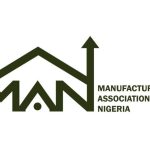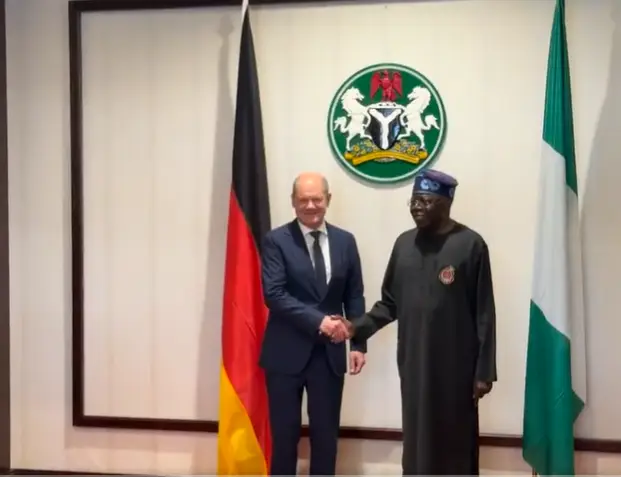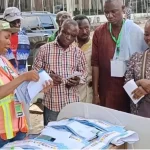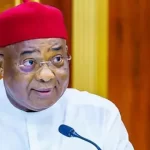By Dickson Omobola
THE visit of German Chancellor, Olaf Scholz, to Nigeria, has opened a new window of opportunity for the nation to position itself in the global energy supply market as he re-echoed the rising demand for Nigeria’s natural gas in Europe.
Germany’s leader who was on a state visit to Nigeria said his country has “a considerable demand for natural gas and, going forward, hydrogen to fuel its economy and energy transition.”
Speaking with journalists after a meeting with President Bola Tinubu in Abuja, Scholz said: ”We have helped the development of the electricity grid in all ECOWAS countries. This is mostly the case here in Nigeria but also in other countries and this is our willingness to use the capacity and the technological strength of our business sector to help the development of these countries.”
Barely a week before Scholz’s visit, the EU’s Commissioner for Energy in Nigeria, Ms. Kadri Simson, had announced the region’s renewed interest in Nigeria’s gas, saying “the bloc is reinforcing its diplomatic relationship with its reliable Liquefied Natural Gas partners like Nigeria in the short-term to bridge the gas supply gap in the continent that resulted from the Russian/Ukraine war.”
Late last year, precisely on September 7, 2022, Polish President Andrzej Duda, met former President Muhammadu Buhari at the State House, Abuja, and expressed his country’s desire to increase energy imports from Nigeria.
These implied that the Russian-Ukrainian conflict has rekindled Europe’s interest in Africa’s energy market as EU nations seek alternatives.
With Nigeria’s proven natural gas reserve said to be above 206.53 trillion cubic feet,tcf, as at January 1, 2021, coupled with the gas transportation plan within Africa and by extension export to Europe via Morocco, the country has no reason not to make haste to harness this market.
The Nigeria – Morocco gas pipeline initiative
In December 2016, the Nigerian National Petroleum Corporation, NNPC, as it was then known, signed an agreement with the Moroccan Office National des Hydrocarbures et des Mines ,ONHYM, for the construction of the Nigeria-Morocco Gas pipeline ,NMGP.
The project is estimated to cost $25bn and is planned to be completed in stages over 25 years. Starting from Nigeria, the 5,660 kilometers long NMGP will pass through Benin, Togo, Ghana, Cote d’Ivoire, Liberia, Sierra Leone, Guinea, Guinea-Bissau, Gambia, Senegal, and Mauritania, to end at Tangiers, a Moroccan port on the Strait of Gibraltar, with a possible extension to Europe through Spain.
Some landmark achievements towards meeting the set goal include approval to commence the conduct of a feasibility study in August 2017, completion of a feasibility study for the construction of the pipeline in January 2019 the award of a contract for the first phase front – end engineering and design project to Penspen Engineering Company same month, presentation of the pipeline proposal to a special meeting of the Economic Communities of West African States ,ECOWAS, in August 2019; kick-off of the second phase of front end engineering and design in March 2020.
King Mohammed VI and former President Buhari affirmed their commitment to the construction of the Nigeria-Morocco gas pipeline in February 2021. There was also the signing of MoU between ECOWAS, Nigeria and Morocco in September 2022; and the signing of an MoU between NNPC Ltd, ONHYM and energy companies of four other ECOWAS countries in June 2023.
It can be safe, therefore, to say at this point that the best that has happened to the project is the signing of documents. Thus, concerned citizens are worried that at the pace the project is being attended to, the European market may have found alternatives to meeting its natural gas needs by the time Nigeria is through with the project.
Although the initial plan of the project was estimated for 25 years, the current reality in the global energy industry is calling for a change of timeline for it to remain relevant.
Apart from the environmental crisis posed by hydrocarbon fuel leading to the demand for alternative sources of energy, the ongoing war between Russia and Ukraine is propelling the need to fast-track the NMGP project.
Unfortunately, the sense of urgency required for the actualisation of this project appears to be absent at the moment. The government of President Bola Tinubu and the NNPC Limited must as a matter of urgency summon the will to fast-track the pace of the project by incorporating the private sector into the execution of the project.
Oilserv Group, others to the rescue
Energy industry experts have argued at several fora that one of the best things that has happened to the Nigerian oil and gas industry is the Nigeria Oil and Gas Industry Content Development Act 2010.
The enforcement of the Act, which prescribed minimum thresholds for the use of local services and materials with the overarching objectives of ensuring job creation and up-skilling of the local labour force among others, has indeed led to the emergence of indigenous firms taking on huge tasks in the industry.
The execution of the Ajaokuta-Kaduna-Kano (AKK) pipeline project is an example that readily comes to mind.
The fact that the 614-kilometre gas pipeline is being executed by indigenous firms is a good testimony to what they can offer.
This is why the recent show of interest by the Chairman and Group Chief Executive Officer of Oilserv Group, Emeka Okwuosa, in the NMGP is a welcome development and one that should be taken seriously by the government and the NNPCL.
Oilserv Group is an indigenous Oil and Gas Engineering, Procurement, Construction, Installation, and Commissioning, EPCIC, pipeline and Facility Company and one of the contracting firms handling the Ajaokuta-Kaduna-Kano, AKK, pipeline project.
Founded in 1992, the company has through reliance on innovation become a globally competitive integrated energy firm with a history of completing turn-key projects in Nigeria and across Africa.
The company is known to have executed projects in Uganda, Kenya and the Republic of Benin.
In Nigeria, the company has a rich history of reference performance which includes being the first and only indigenous company to fabricate, install and commission the largest oil manifold station,36-inch TNP Ebubu Manifold for Shell Petroleum Development Company, SPDC, first Nigerian company to successfully execute pipeline repairs using Cofferdam, first Nigerian company to execute pipeline repair work involving Hot Tap as well as one of the few companies to be certified and compliant with ISO 9001:2015 Quality Management System requirements.
It participated in the execution of over 100 projects in both swampy and dry environments. Since its incorporation 14 years ago, including over fifteen major projects, it remains the major company executing pipeline repairs/rehabilitation work for SPDC and Nigeria Liquefied Natural Gas Limited, NLNG.
Therefore, the recent expression of readiness to participate in the construction of the $25 billion Nigeria-Morocco gas pipeline ,NMGP, project and other emerging gas pipeline projects by the Chairman of Oilserv Group, Okwuosa, should be seen as a welcome development.
Okwuosa, who opened up on the issue during an online interactive session with journalists, affirmed that his company had built enormous capacity and experience in delivering pipeline projects both in Nigeria and many parts of the world.
He expressed displeasure at the unavailability of pipelines to distribute gas for both local consumption and international sales and delivery, stressing that the country is economically backward for that today.
“Oilserv is always ready to make a difference in the delivery of the emerging pipeline projects on the continent. The Trans-Saharan Gas Pipeline is one of the two major international pipelines that are being envisaged. The pipeline is the one that will take off in Kano and go through the Niger Republic and Algeria and end up in Europe.
“The project that is hot now and is on board in terms of process is the Nigeria-Morocco which will run offshore West Africa to North Africa. It will go all the way from the Niger Delta to offshore Lagos.
“It will then go through all the countries on the coast of West Africa until it gets to Mauritania. And then it goes on land from the back of Mauritania to Morocco where it crosses the channel until it gets to Spain.
“These are the key pipelines that are coming, and we are very aware of the opportunities and we have been part of that. We know that it is a project that might require more than one contractor to execute, but we want to be part of it because we can deliver our scopes,” Okwuosa said.
He insisted that being allowed to participate in NMGP is a win-win for Nigeria as his company engages only Nigerian staff.
”This is a matter of growing our economy and empowering our people. Whatever we make out of the project would be used to create value for our government and our citizens.
“There is a need to empower indigenous firms with the necessary capacity in projects like the NMGP for the very obvious reason of growing our local production capacity as well as our economic well-being,” Okwuosa added.
AKK project
Only last month, the Minister of State for Petroleum Resources, Gas, Mr. Ekperikpe Ekpo, led a team of executives from Nigeria Midstream and Downstream Petroleum Regulatory Authority, NNPCL, and others on an inspection tour of the project. During the inspection, the Minister was well-educated on the value Oilserv was offering.
Okwuosa, assured the Minister and his team of the timely delivery, stressing that the Linear section, which would carry the gas, was about 80 per cent completed, while the overall completion of the entire project is 55 per cent.








